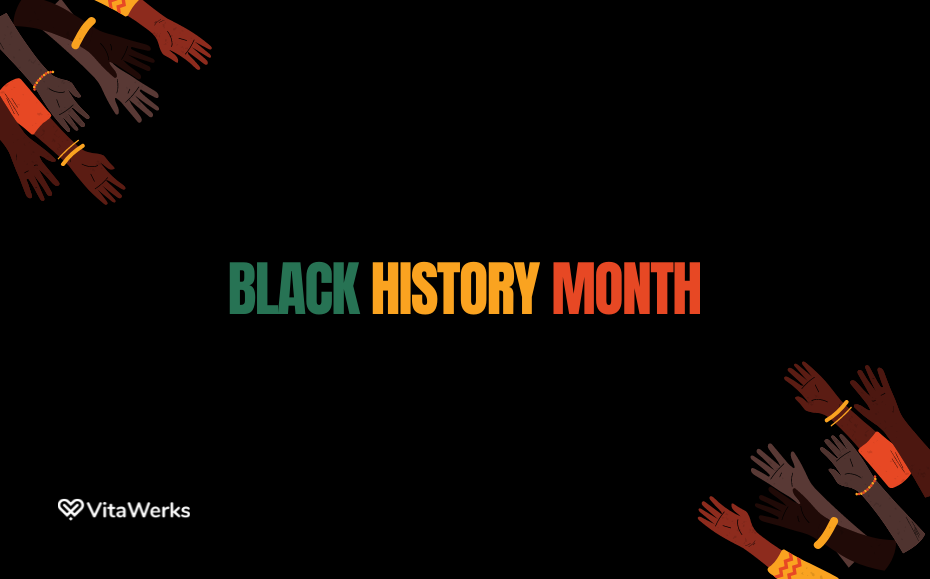
Why Celebrating Black History Month In The Workplace Matters
Black History Month is a time of commemoration. Every year, we pay tribute to the pioneers who sacrificed so much to shatter barriers. In this regard, nursing is no exception. The history of nursing in America cannot be told without the contributions of exceptional People of Color.
Today many exceptional black nurses can be found across the country. While much has changed for the better, there is still work to be done. Why is it so important to celebrate Black History Month, to this day? How can this be done in a tasteful yet lively manner? Read on to find out.
Workplace bigotry is still a problem
From racism, to homophobia, to ableism, workplace discrimination of all stripes is a problem in many workplace environments. According to a survey conducted by the National Commission to Address Racism in Nursing (the Commission), racism in nursing spaces is very much a current issue. 63% of the 5,600 correspondents claimed to have experienced racist acts from their peers or (especially) superiors.
A staggering 92% of the black nurses questioned claimed they were victims of racism, mostly from their leaders or superiors. While the country has made progress in the bigger picture, bigotry is still very much an ongoing issue.
It would be naive to think that observing Black History Month would end bigotry, as we know it. Rather, it offers an opportunity to send a clear but powerful message: we stand with our PoC nurses and doctors, and your hatred is not welcome here.
A deeper, more complete view of history
Black history is inseparable from all of American history, and that includes American Medical History. Most of us remember the contributions of pioneers like Florence Nightingale, who changed the way we view gender roles in nursing. The black pioneers who blazed a trail for many nurses today deserve a similar level of love and respect.
Harriet Tubman and Sojourner Truth offered life-saving care to soldiers in the 1800s. Mary Elizabeth Mahoney broke through to become the first licensed professional nurse in the country. All this is just the tip of the proverbial iceberg.
Black History Month should not be seen as a tiresome obligation or existing within its own vacuum. It gives us a fuller picture of history that some of us were not afforded.
A greater sense of empathy and compassion
Carter G. Woodson conceived of the earliest version of Black History Month, in 1926. In doing this, he wanted to shine a light on and celebrate the contributions that countless Black men and women offered to history. This was all part of a greater movement to shift race relations for the better.
By sincerely learning and celebrating Black History, we grow in empathy and appreciation. We should help people learn not only the struggles of the African American forefathers, but their triumphs and breakthroughs. Even though we have collectively made progress, there is still work to be done.
Fun Ways To Celebrate
We have established the value of celebrating Black History Month, but that begs the question: How can we go about celebrating it in a tasteful manner?
Hosting events with qualified speakers is a great way for nurses to get educated and involved. Historians, black nursing leaders, and activists (among many other people) undoubtedly have a lot of valuable insight to offer, regarding Black History and how it relates to nursing.
Sometimes, the simplest celebrations are the most effective. Gathering for a Black History Month potluck dinner is powerful. After all, nothing unites people of different stripes better than good food. During the dinner, you can have a number of Black History Month-related games like a history trivia quiz.
A year long tradition
When Woodson initially conceived of a Black History Month celebration, he did not want things to end as soon as February was finished. After all, the subject is far too broad and important to be tackled within such a short timeframe.
If all acknowledgement of black excellence or black history ended after the month, it would come off as insincere. There should be acknowledgements and celebrations of black history strewn throughout the year. If anything, the month of February should be seen as a“culmination” of everything we learned about black history throughout the year.
This also applies to Latinos, Asian-Americans, the LGBT+ community and so on. Creating a diverse and welcoming community does not happen overnight. It is an attitude that is fostered and encouraged in all the little things that we do.
Copyright © 2024 Vitawerks